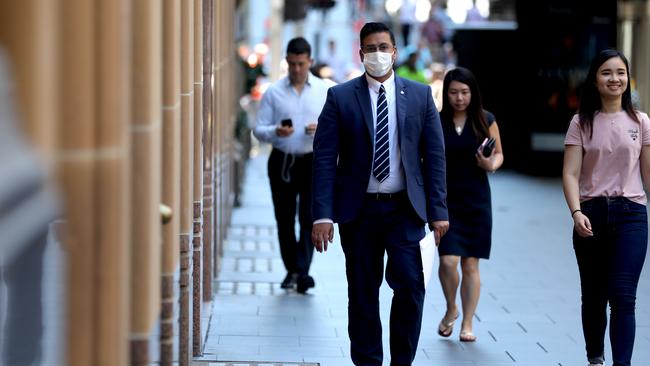Three in 10 firms report supply chain issues as a result of COVID
Thirty per cent of Australian businesses say they are having trouble getting the parts or products they need, with the majority of those having to switch suppliers.

Three in 10 Australian businesses say they are having trouble getting the parts or products they need, as the pandemic continues to disrupt supply chains around the world.
The latest special COVID business sentiments and conditions survey from the Australian Bureau of Statistics also revealed that operating conditions improved in April, despite the end of JobKeeper the month before. Fewer than one in five firms reported a drop in revenue for the month — the lowest proportion since the survey began last July.
One in 10 said they had hired staff in April and a similar proportion planned to hire in May, the latter matching the previous, pre-summer peak in December.
While there was no early evidence of the feared “fiscal cliff” following the end of emergency income support, the ABS report revealed that corporate Australia continued to operate under the cloud of the pandemic.
Of the 30 per cent of firms that reported supply-chain disruptions, more than a third were affected to a “great extent”, in that they were suffering major delays or were unable to get their hands on certain items.
This was having a “significant impact” on revenue, the report said.
Nearly 60 per cent of disrupted businesses reported only “some delays” getting needed products or inputs, but that this was having little impact on earnings.
Innes Willox, chief executive of national employer association Ai Group, said the ABS findings echoed what members were saying. He said shortages of shipping and shipping containers, and difficulties sourcing inputs ranging from semiconductors to construction supplies, were “constraining normal business activity and growth opportunities”.
India’s massive second COVID-19 wave had triggered new pressures on supply chains, Mr Innes said.
The pandemic has created bottlenecks in global trade, with shortages of shipping containers sending freight costs soaring and slowing the flow of goods.
An acute worldwide shortage of semiconductors has crimped new car production, pushing used vehicle prices in Australia almost 40 per cent higher than they were before the pandemic, according to a recent Moody’s report.
To deal with disruptions, the ABS report revealed four in 10 of the businesses experiencing supply-chain issues had changed suppliers. Of this smaller subset, 63 per cent said they had changed to an alternative domestic supplier and 33 per cent to an alternative global source.
Close to a quarter said they had switched from a global supplier to a local one and 15 per cent said the reverse (respondents could choose more than one response).
The sectors hardest hit by supply chain problems were manufacturing at 55 per cent of respondents, “other services” (which includes repair and maintenance, as well as hairdressers) at 54 per cent. The retail and wholesale trade sectors were at 52 per cent and 50 per cent, respectively.
Mr Innes said there were some cases where gaps in international supply chains had been filled by local businesses, but the likely temporary nature of the disruptions were preventing these firms from investing heavily in lifting domestic capacity.





To join the conversation, please log in. Don't have an account? Register
Join the conversation, you are commenting as Logout